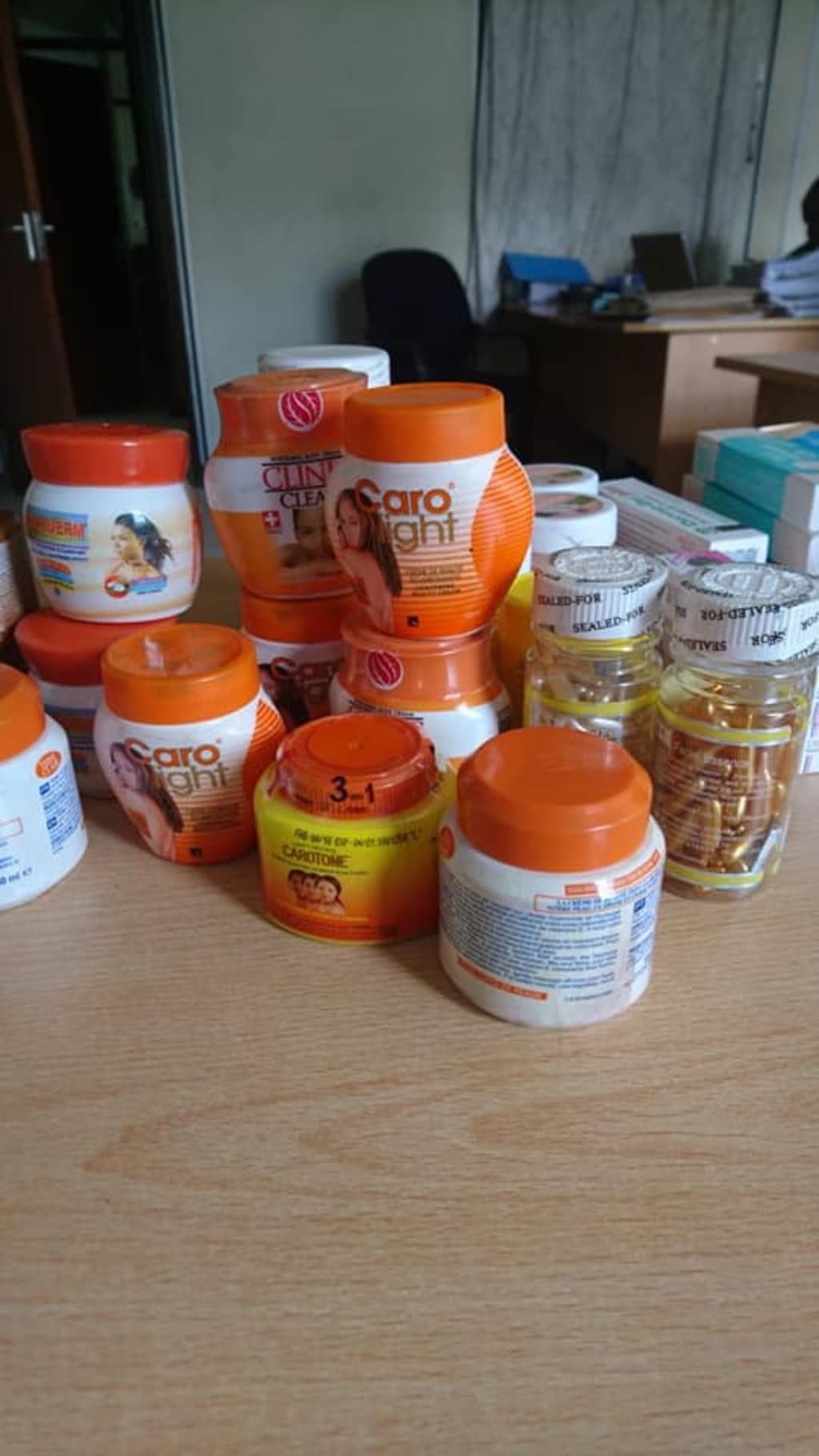Top 8 Harmful Skin Lightening Creams Banned in Kenya
Protecting Your Skin and Health: A List of 8 Banned Skin Lightening Creams in Kenya

Skin lightening is a widely practiced cosmetic trend in many parts of the world, including Kenya. However, the use of certain skin lightening creams containing harmful ingredients has raised serious health concerns. To safeguard consumers from potential risks, the Kenyan government has taken a proactive step by banning several skin lightening creams. In this article, we will delve into the top eight banned skin lightening creams in Kenya, and highlight the harmful effects of their ingredients.
1. Faiza Beauty Cream
Faiza Beauty Cream is one of the well-known skin lightening creams in Kenya. Unfortunately, it contains both hydroquinone and mercury, which are detrimental to human health. Hydroquinone is used to reduce the production of melanin but has been linked to skin irritation, inflammation, and even an increased risk of cancer. Despite its skin-lightening effects, the potential health risks associated with this cream far outweigh any cosmetic benefits, leading to its ban in Kenya.
2. Tura Skin Lightening Cream
Tura Skin Lightening Cream, another popular product, has also been banned due to the presence of hydroquinone. This chemical can cause skin irritation and other health issues, prompting the authorities to take action against its distribution and use. While consumers may have sought a fairer complexion, they inadvertently exposed themselves to the dangers of this hazardous ingredient.
3. Acura Skin Lightening Cream
Acura Skin Lightening Cream is another offender on the list, banned because of its hydroquinone and mercury content. These toxic substances can lead to severe health problems when absorbed through the skin. Such creams often make unrealistic promises of transforming the skin tone, but the cost of these fleeting results can be devastating to one's health.
4. Top Gel MCA Extra Pearl Cream
Top Gel MCA Extra Pearl Cream, a product that promises skin lightening benefits, was found to contain alarming levels of mercury. Exposure to mercury can cause kidney damage and neurological problems, making this cream a significant health hazard. The allure of a lighter complexion should never come at the expense of well-being.
5. Maxi Claire Lightening Body Cream
Maxi Claire Lightening Body Cream has also been banned due to its hydroquinone content. As with other creams containing this chemical, it poses potential risks such as skin irritation and other related health problems. For many consumers, the desire to conform to societal beauty standards often overshadowed the potential consequences of using such products.
6.Caro White Lightening Beauty Cream
Caro White Lightening Beauty Cream has been found to contain both hydroquinone and mercury, making it a doubly dangerous product. Prolonged use of such creams can lead to severe health issues, emphasizing the importance of avoiding such products. The beauty industry's unrelenting pressure on individuals to attain a specific standard of beauty can have detrimental effects on their health.
7. Amira Skin Lightening Cream
Amira Skin Lightening Cream has been banned in Kenya due to the presence of both hydroquinone and mercury. The combination of these harmful ingredients increases the potential risks to consumers' health and well-being. The pursuit of fair skin should never come at the risk of compromising one's overall health.
8. Peau Claire Lightening Body Cream
Peau Claire Lightening Body Cream is yet another product on the banned list, known to contain hydroquinone and other harmful ingredients. The use of such creams can lead to skin irritation and other health problems, necessitating their removal from the market. The importance of using safe and tested cosmetic products cannot be overstated in the pursuit of beauty.
Conclusion
The Kenyan government's decision to ban these skin lightening creams was driven by the presence of harmful ingredients that can cause serious health problems. To protect themselves, consumers must be vigilant about reading product labels and seeking advice from dermatologists before using any new skincare product. Embracing one's natural skin color and avoiding harmful skin lightening practices should be encouraged, as it promotes a healthy approach to beauty and self-acceptance. Ultimately, making informed choices and prioritizing overall well-being is the key to maintaining healthy and radiant skin. The focus should be on self-care, self-love, and celebrating the unique beauty of every individual, regardless of skin tone. The path to true beauty lies not in altering one's appearance but in embracing and nurturing the skin they are born with





Comments
There are no comments for this story
Be the first to respond and start the conversation.